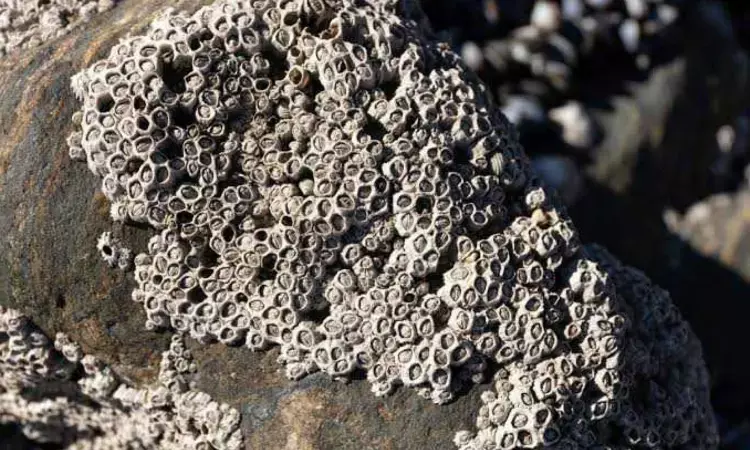- Home
- Medical news & Guidelines
- Anesthesiology
- Cardiology and CTVS
- Critical Care
- Dentistry
- Dermatology
- Diabetes and Endocrinology
- ENT
- Gastroenterology
- Medicine
- Nephrology
- Neurology
- Obstretics-Gynaecology
- Oncology
- Ophthalmology
- Orthopaedics
- Pediatrics-Neonatology
- Psychiatry
- Pulmonology
- Radiology
- Surgery
- Urology
- Laboratory Medicine
- Diet
- Nursing
- Paramedical
- Physiotherapy
- Health news
- Fact Check
- Bone Health Fact Check
- Brain Health Fact Check
- Cancer Related Fact Check
- Child Care Fact Check
- Dental and oral health fact check
- Diabetes and metabolic health fact check
- Diet and Nutrition Fact Check
- Eye and ENT Care Fact Check
- Fitness fact check
- Gut health fact check
- Heart health fact check
- Kidney health fact check
- Medical education fact check
- Men's health fact check
- Respiratory fact check
- Skin and hair care fact check
- Vaccine and Immunization fact check
- Women's health fact check
- AYUSH
- State News
- Andaman and Nicobar Islands
- Andhra Pradesh
- Arunachal Pradesh
- Assam
- Bihar
- Chandigarh
- Chattisgarh
- Dadra and Nagar Haveli
- Daman and Diu
- Delhi
- Goa
- Gujarat
- Haryana
- Himachal Pradesh
- Jammu & Kashmir
- Jharkhand
- Karnataka
- Kerala
- Ladakh
- Lakshadweep
- Madhya Pradesh
- Maharashtra
- Manipur
- Meghalaya
- Mizoram
- Nagaland
- Odisha
- Puducherry
- Punjab
- Rajasthan
- Sikkim
- Tamil Nadu
- Telangana
- Tripura
- Uttar Pradesh
- Uttrakhand
- West Bengal
- Medical Education
- Industry
Novel Medical Glue developed that Stops Bleeding in Seconds

A rapid-sealing paste that can stop bleeding organs independent of clotting has been developed by Mayo Clinic researchers and colleagues at Massachusetts Institute of Technology (MIT). The details are published in Nature Biomedical Engineering.
The inspiration for this paste? Barnacles.
Barnacles are those sea animals that adhere to rocks, the bottom of ships and large fish with the aim of staying in place despite wet conditions and variable surfaces. They're successful because they exude a type of oil matrix that cleans the surface and repels moisture. Then they follow up with a protein that cross-links them with the molecules of the surface. That two-step process is what happens when the sealing paste is applied to organs or tissues.
Historically, surgeons would use a type of material that would speed up coagulation and form a clot to stop the bleeding. In the fastest cases, that would still take several minutes. In preclinical studies, this research team has shown the paste to stop bleeding in as little as 15 seconds, even before clotting has begun.
"Our data show how the paste achieves rapid hemostasis in a coagulation-independent fashion. The resulting tissue seal can withstand even high arterial pressures," says Christoph Nabzdyk, M.D., a Mayo Clinic cardiac anesthesiologist and critical care physician. "We think the paste may be useful in stemming severe bleeding, including in internal organs, and in patients with clotting disorders or on blood thinners. This might become useful for the care of military and civilian trauma victims." Dr. Nabzdyk is co-senior lead author of the study.
The paste consists of an injectable material that consists of a water-repelling oil matrix and bioadhesive microparticles. It's the microparticles that link to each other and the surface of the tissue after the oil has provided a clean place to connect. The biomaterial slowly resorbs over a period of weeks.
The research was supported by MIT's Deshpande Center, National Institutes of Health, National Science Foundation, Army Research Office, The Zoll Foundation, and the Samsung Scholarship. The technology is protected by a shared patent between MIT and Mayo Clinic.
Hina Zahid Joined Medical Dialogue in 2017 with a passion to work as a Reporter. She coordinates with various national and international journals and association and covers all the stories related to Medical guidelines, Medical Journals, rare medical surgeries as well as all the updates in the medical field. Email: editorial@medicaldialogues.in. Contact no. 011-43720751
Dr Kamal Kant Kohli-MBBS, DTCD- a chest specialist with more than 30 years of practice and a flair for writing clinical articles, Dr Kamal Kant Kohli joined Medical Dialogues as a Chief Editor of Medical News. Besides writing articles, as an editor, he proofreads and verifies all the medical content published on Medical Dialogues including those coming from journals, studies,medical conferences,guidelines etc. Email: drkohli@medicaldialogues.in. Contact no. 011-43720751


